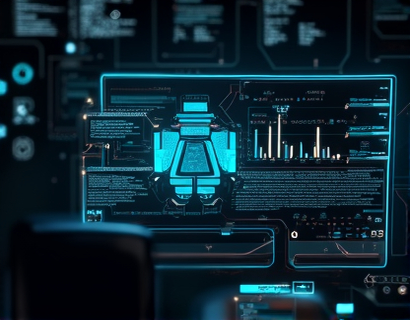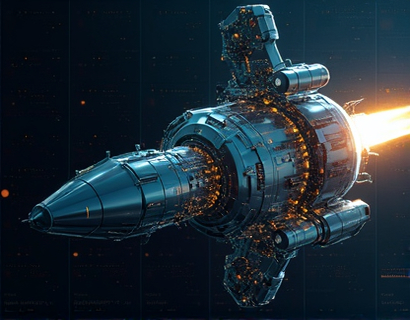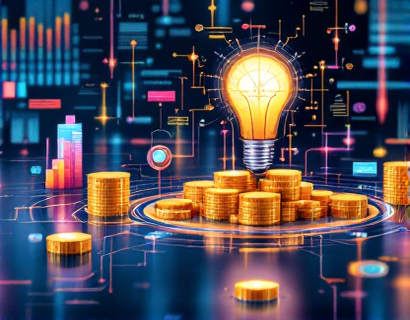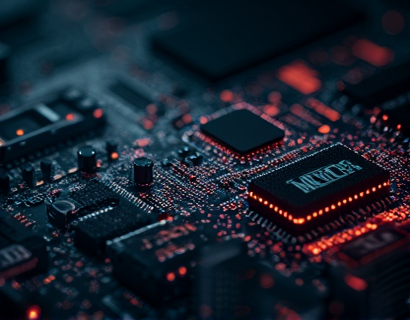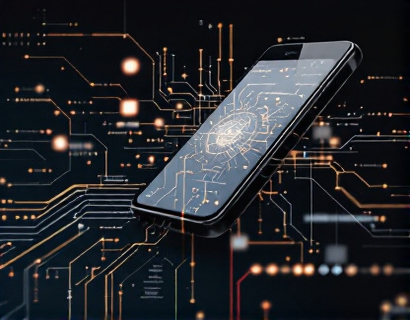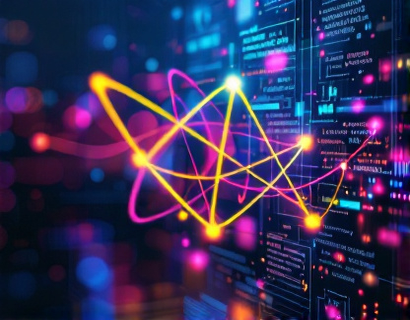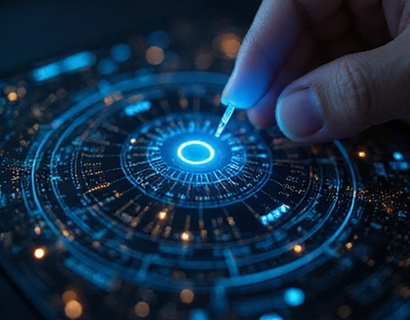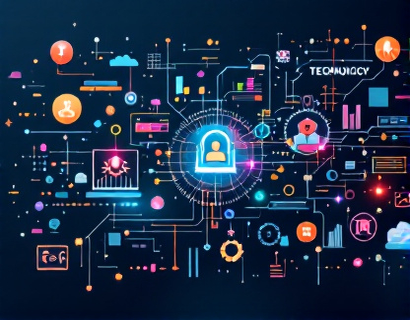Decentralized Excellence: Revolutionizing Digital Transformation with AI and Crypto Synergy
The intersection of artificial intelligence (AI) and cryptocurrency is giving birth to a new era of digital transformation, one that promises to redefine how we interact with technology and each other. This synergy, often referred to as decentralized excellence, is not just a buzzword but a profound shift in the way decentralized applications (dApps) and services are developed, deployed, and experienced. This article delves into the transformative power of merging AI and crypto to drive the next wave of decentralized digital solutions, enhancing user experience and engagement in the rapidly evolving landscape of interconnected applications and services.
To understand the significance of this convergence, it's essential to first grasp the individual potentials of AI and cryptocurrency. AI, with its ability to process vast amounts of data, learn from patterns, and make decisions with minimal human intervention, has already begun to revolutionize industries ranging from healthcare to finance. On the other hand, cryptocurrency, particularly blockchain technology, offers a decentralized, secure, and transparent way to conduct transactions and manage data, eliminating the need for intermediaries.
The synergy between AI and cryptocurrency becomes evident when we consider how these technologies can complement each other to create more robust, efficient, and user-friendly systems. For instance, AI can enhance the security and functionality of blockchain networks by detecting and mitigating threats in real-time, while blockchain can provide a tamper-proof ledger for AI models and their data, ensuring integrity and trust.
Enhancing Security and Trust
One of the most significant benefits of combining AI and cryptocurrency is the enhancement of security and trust in digital transactions and data management. Blockchain's inherent properties, such as immutability and transparency, make it an ideal foundation for AI-driven applications. AI algorithms can monitor blockchain networks for anomalous activities, such as fraudulent transactions or DDoS attacks, and respond automatically to mitigate these threats. This real-time monitoring and response capability significantly reduces the risk of security breaches and builds user trust in decentralized systems.
Moreover, the use of smart contracts, self-executing contracts with the terms directly written into code, can be optimized by AI to ensure compliance and efficiency. AI can analyze the conditions and outcomes of smart contracts, suggesting improvements and identifying potential vulnerabilities. This synergy not only enhances the security of transactions but also streamlines processes, making them more reliable and user-friendly.
Optimizing User Experience
The integration of AI and cryptocurrency also plays a crucial role in optimizing user experience. AI-driven personalization is a key aspect of modern digital services, and when combined with the decentralized nature of cryptocurrency, it can lead to highly tailored and secure user experiences. For example, AI can analyze user behavior and preferences to recommend personalized content, services, or products, all while ensuring that the data used for personalization is stored and processed on a decentralized blockchain network. This approach not only enhances the relevance and quality of the user experience but also respects user privacy by minimizing data centralization.
Furthermore, AI-powered chatbots and virtual assistants can be deployed on blockchain-based platforms to provide 24/7 customer support with enhanced security. These AI-driven interfaces can handle a wide range of queries and transactions, from simple information requests to complex financial operations, all while maintaining the integrity and confidentiality of user data.
Driving Decentralized Innovation
The combination of AI and cryptocurrency is not only about enhancing existing systems but also about driving innovation in the creation of new decentralized applications and services. Decentralized finance (DeFi) is a prime example of this innovation, where AI can optimize trading strategies, risk management, and portfolio management within a decentralized framework. AI algorithms can analyze market data, predict trends, and execute trades autonomously, all while leveraging the transparency and security of blockchain technology.
Another area of innovation is decentralized identity management. AI can help create and manage digital identities that are secure, verifiable, and user-controlled. Blockchain ensures that these identities are stored and transmitted securely, preventing identity theft and fraud. AI can also enhance the user experience by simplifying the process of identity verification and management, making it more accessible and convenient for users.
Case Studies and Real-World Applications
Several projects and platforms are already leveraging the synergy between AI and cryptocurrency to drive decentralized innovation. One notable example is Augur, a decentralized prediction market platform that uses AI to improve the accuracy of predictions. Augur's AI algorithms analyze historical data and real-time information to generate reliable predictions, which users can bet on. The platform's decentralized nature ensures that no single entity controls the data or the outcomes, fostering a fair and transparent environment.
Another example is Gnosis, a decentralized prediction and outcome market that integrates AI to enhance its offerings. Gnosis uses AI to analyze vast amounts of data from various sources, providing users with insights and predictions on a wide range of topics, from sports events to financial markets. The AI-driven insights are stored on the blockchain, ensuring transparency and trust. Users can interact with these insights through a user-friendly interface, making complex data accessible and actionable.
Challenges and Future Prospects
Despite the promising potential of AI and cryptocurrency synergy, there are challenges that need to be addressed. One of the primary challenges is the technical complexity involved in integrating these technologies. Developers must have a deep understanding of both AI and blockchain to create effective and secure decentralized applications. Additionally, the regulatory landscape for cryptocurrency and AI is still evolving, and navigating these regulations can be daunting for innovators.
However, the future looks bright. As more tech-savvy innovators and early adopters recognize the benefits of this synergy, we can expect to see more robust frameworks, tools, and platforms emerge. The development of user-friendly interfaces and simplified development environments will make it easier for a broader range of developers to create decentralized AI applications. Moreover, increased collaboration between the AI and cryptocurrency communities will drive further innovation and adoption.
Conclusion
The convergence of AI and cryptocurrency is paving the way for a new era of decentralized digital transformation. By enhancing security, optimizing user experience, and driving innovation, this synergy is set to revolutionize how we interact with technology. As the landscape continues to evolve, the potential for decentralized excellence is immense, offering exciting opportunities for tech enthusiasts, businesses, and users alike. Embracing this transformation is not just about keeping up with the times; it's about shaping the future of digital solutions.












